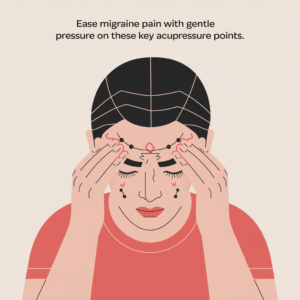Living with chronic pain is like carrying an invisible weight that few can understand. In my quest for relief, I’ve turned to ibuprofen, a common over-the-counter medication known for its effectiveness in dulling the aches that accompany my daily life. But with relief comes a new challenge—stomach aches and diarrhea that linger long after the pain has subsided. I’ve noticed a pattern, one that’s hard to ignore: my reliance on ibuprofen a couple of times per week seems to coincide with these unwelcome digestive disturbances that trouble me for days.

Understanding Ibuprofen and Its Uses
Ibuprofen has been a familiar figure in my medicine cabinet, a go-to ally against the persistent pain that shadows my days. Known for its anti-inflammatory properties, it’s been a readily available option to manage everything from the dull throbs of joint pain to the acute pangs of a headache. My choice to use ibuprofen was simple; it promised quick relief, enabling me to carry on with my life with minimal disruption. Yet, I couldn’t help but wonder about the trade-off as I grappled with the gastrointestinal side effects that seemed to follow its use.
The Onset of Gastrointestinal Symptoms
It didn’t take long for me to connect the dots between my ibuprofen use and the onset of stomach issues. The pattern was clear and troubling: I noticed that within hours, and sometimes even days, after taking ibuprofen, a gnawing stomach ache would set in, followed by bouts of diarrhea that left me feeling drained and frustrated. These weren’t just mild discomforts; they were disruptive, affecting my daily routine and well-being.
At first, I dismissed these symptoms as coincidences or perhaps the result of dietary choices. But as the pattern persisted, I couldn’t ignore the possibility that the medication I was taking to ease my pain was paradoxically causing a different kind of distress. This realization led me down a path of research and self-reflection, seeking to understand the delicate balance between managing chronic pain and maintaining overall digestive health.

Research and Evidence: Ibuprofen’s Side Effects
Driven by my own uncomfortable experiences, I began to delve into the research on ibuprofen and its potential side effects. It turns out that my symptoms weren’t unique; studies and patient reports alike have documented that nonsteroidal anti-inflammatory drugs (NSAIDs) like ibuprofen can indeed cause gastrointestinal issues, including stomach pain and diarrhea.
The science behind this is rooted in the way ibuprofen works; it inhibits certain enzymes in the body that reduce pain and inflammation but also play a protective role in the stomach lining. Without this protection, the stomach can become more susceptible to irritation and ulcers, which can lead to the symptoms I was experiencing. Moreover, the disruption of the gut’s natural flora might be a contributing factor to the bouts of diarrhea.
Seeking a deeper understanding of what happens in the body after that ibuprofen pill is swallowed, I found Ibuprofen Exposed: What Happens Inside You After That Pill. This resource provided me with valuable insights into the internal effects of ibuprofen and underscored the importance of being aware of the medication’s impact beyond its pain-relieving benefits.
My research was an eye-opener, to say the least. It reinforced the importance of being an informed patient, particularly when it comes to medications that are so easily accessible and commonly used. Understanding the side effects of ibuprofen has prompted me to consider more carefully how I manage my chronic pain and to seek alternatives that might be kinder to my body overall.

My Steps to Mitigate the Side Effects
Armed with knowledge and a determination to find balance, I started taking proactive steps to mitigate the gastrointestinal side effects of ibuprofen. It became clear that while ibuprofen was effective in silencing my chronic pain, I needed to be strategic about its use to prevent further discomfort.
I began by adjusting when and how I took ibuprofen. Instead of on an empty stomach, I made sure to take it with meals, hoping that food would act as a buffer and protect my stomach lining. I also experimented with reducing the dosage, finding the minimum effective dose that would still provide pain relief without as much of the gastrointestinal backlash.
In addition to these adjustments, I started paying closer attention to my body’s signals across the board. Just as ibuprofen use required a thoughtful approach, so did interpreting other bodily symptoms. For instance, experiencing occasional episodes of regurgitating stomach contents, commonly known as “burping up puke,” prompted me to consider other underlying digestive issues. In exploring this, I found Burping Up Puke? Here’s What Your Body Is Trying to Tell You, an article that offered insights into what such symptoms might indicate and how they could be addressed.
Taking these steps hasn’t eliminated the problem entirely, but it has helped reduce the frequency and severity of the stomach aches and diarrhea. This journey has been a reminder of the importance of listening to my body and responding with care, particularly when it comes to managing chronic conditions and the side effects of the medications used to treat them.

The Pain Relief vs. Stomach Discomfort Dilemma
Facing the dilemma between managing chronic pain and dealing with the adverse effects of ibuprofen, like stomach discomfort and diarrhea, has been a challenging journey. Despite the steps I’ve taken to mitigate these side effects, the reality remains that sometimes ibuprofen is necessary for me to function amidst chronic pain. This predicament has pushed me to explore further strategies and consult healthcare professionals to find a sustainable solution.
Consulting with Healthcare Professionals
One of the first actions I took was to consult with my healthcare provider about my concerns. Their guidance was instrumental in understanding the balance between ibuprofen’s benefits and risks. They suggested alternatives for pain management that might be gentler on my stomach while still providing effective relief. These included acetaminophen for certain types of pain, where appropriate, and exploring prescription NSAIDs that might be less irritating to my gastrointestinal system.
Exploring Alternative Pain Management Techniques
Alongside medical advice, I ventured into alternative pain management techniques. Physical therapy, for example, offered relief and strategies for managing my chronic pain without solely relying on medications. Techniques such as heat therapy, cold therapy, and gentle exercise became part of my routine, providing not only physical benefits but also a sense of empowerment over my pain.
Dietary adjustments also played a role. Incorporating more anti-inflammatory foods into my diet and staying hydrated helped reduce overall inflammation and supported digestive health. This holistic approach to managing pain and side effects underscored the importance of viewing my health as an interconnected system.

The Role of Mindfulness and Stress Reduction
Mindfulness and stress reduction techniques have also been a refuge. Practices like meditation, deep breathing exercises, and yoga have not only aided in managing pain but have also helped mitigate stress, which can exacerbate both pain and gastrointestinal issues. These practices reminded me that managing pain involves the mind just as much as the body.
Moving Forward
The journey through managing chronic pain with ibuprofen and navigating its gastrointestinal side effects has been enlightening. It’s taught me the importance of being proactive about my health, seeking professional guidance, and being open to a multifaceted approach to pain management. While ibuprofen may still be a part of my pain management toolkit, it no longer stands alone. By incorporating a broader spectrum of strategies and remaining mindful of the balance between relief and discomfort, I continue to navigate my chronic pain with renewed resilience and understanding.
As an Amazon Associate we earn from qualifying purchases through some links in our articles.




